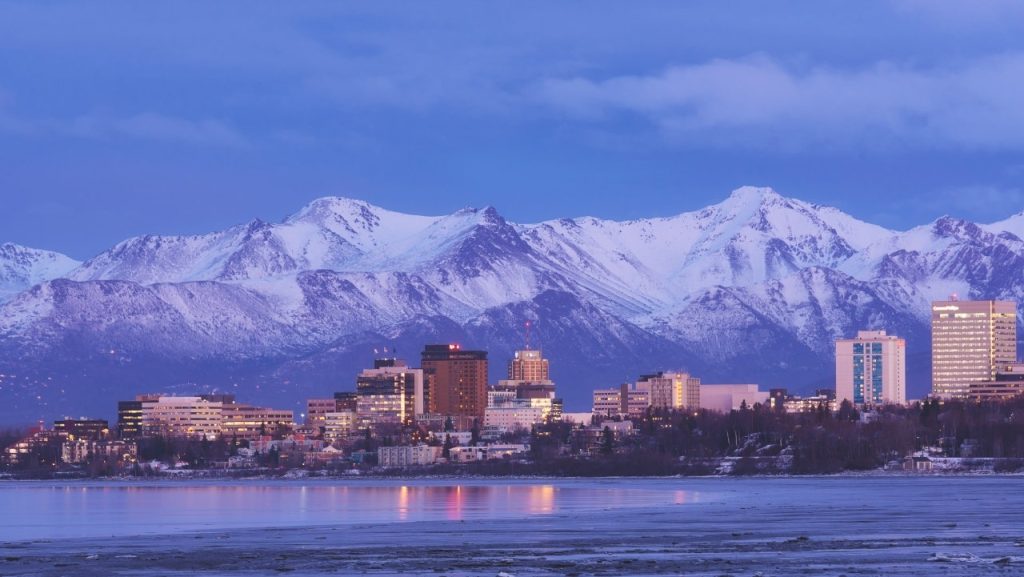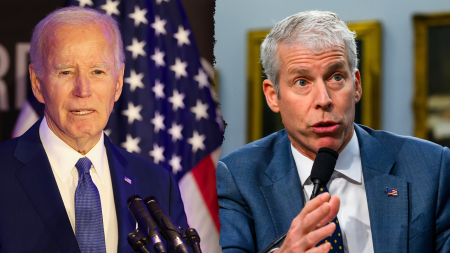The Biden administration’s handling of the congressionally mandated lease sale for oil and gas exploration in the Arctic National Wildlife Refuge’s (ANWR) 1002 area has sparked widespread condemnation from Alaskan officials. The planned January sale has been labeled a bad-faith effort, orchestrated to undermine Alaska’s economic opportunities and disregard the will of Congress. This discontent stems from the perceived bias towards outside environmental groups and a blatant disregard for the interests of local communities who stand to benefit most from responsible resource development. Alaskan leaders view this decision as another example of the administration’s contradictory energy policy, which seemingly prioritizes foreign oil over domestic production.
Alaska Governor Mike Dunleavy expressed his frustration with the administration’s seemingly contradictory approach to energy policy. He questioned the rationale behind restricting Alaskan drilling while simultaneously seeking oil imports from rival nations and promoting alternative energy sources. Dunleavy emphasized the potential for Alaska to contribute significantly to America’s energy independence, suggesting that the administration’s actions defy logic. While advocating for alternative energy solutions like harnessing tidal power in Cook Inlet, Dunleavy condemned the cancellation of ANWR leases and expressed hope that the incoming administration would reverse these decisions, labeling them a defiance of the spirit of the law.
The Inupiat community of Kaktovik, the only settlement within ANWR’s 1002 area, has voiced strong opposition to the structure of the lease sale. Contrary to narratives pushed by environmental groups, Kaktovik leaders assert their support for responsible resource development on their traditional lands. They accuse the administration of prioritizing the voices of well-funded environmental organizations over the concerns of their community. The structured lease sale is perceived as a predetermined outcome, designed to limit development and disregard the economic aspirations of the local population. This sentiment echoes a broader concern that outside interests are dictating the fate of Alaskan resources, sidelining the voices of those most directly affected.
The Alaska Industrial Development & Export Authority (AIDEA) shares the concerns of local communities, arguing that the administration’s decision effectively blocks nearly all development within ANWR 1002, even on a small scale. AIDEA officials believe that this action further demonstrates the administration’s pattern of obstructing natural resource development in Alaska, despite the potential for significant economic benefits and job creation for Alaskan residents. They argue that developing ANWR could provide well-paying jobs, helping to retain Alaska’s workforce and contribute to the state’s economic prosperity. The administration’s actions are seen as a detriment to both the state’s economy and its residents’ livelihoods.
Alaska’s U.S. Senators, Dan Sullivan and Lisa Murkowski, both Republicans, have joined the chorus of disapproval, labeling the lease sale a last-minute charade designed to circumvent the 2017 Tax Cuts and Jobs Act, which mandated the sale. They see this as a continuation of the administration’s pattern of favoring foreign oil production from adversaries like Iran and Venezuela while actively stifling domestic energy development in Alaska. This double standard is perceived as not only harmful to Alaska’s economy but also detrimental to America’s energy security and global standing. The senators’ criticism underscores the political divide over energy policy and the perceived prioritization of environmental concerns over economic development and energy independence.
The collective outrage from Alaskan officials highlights a deeper conflict between the state’s desire for economic prosperity through resource development and the administration’s focus on environmental protection and transitioning to alternative energy sources. The perceived disregard for local communities’ voices and the prioritization of outside environmental groups have further fueled the discontent. This controversy underscores the ongoing debate surrounding responsible resource management, balancing economic needs with environmental stewardship, and ensuring that the voices of those most directly impacted are heard and respected. The lack of response from the Department of the Interior and the White House further exacerbates the situation, leaving Alaskans feeling unheard and ignored by the federal government.










